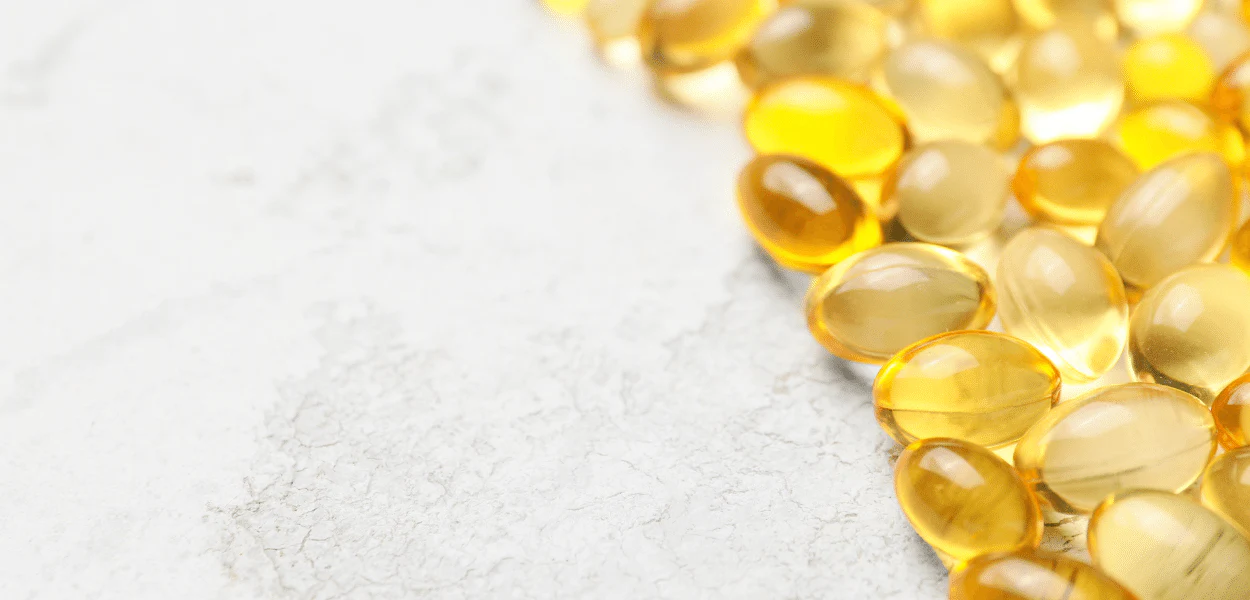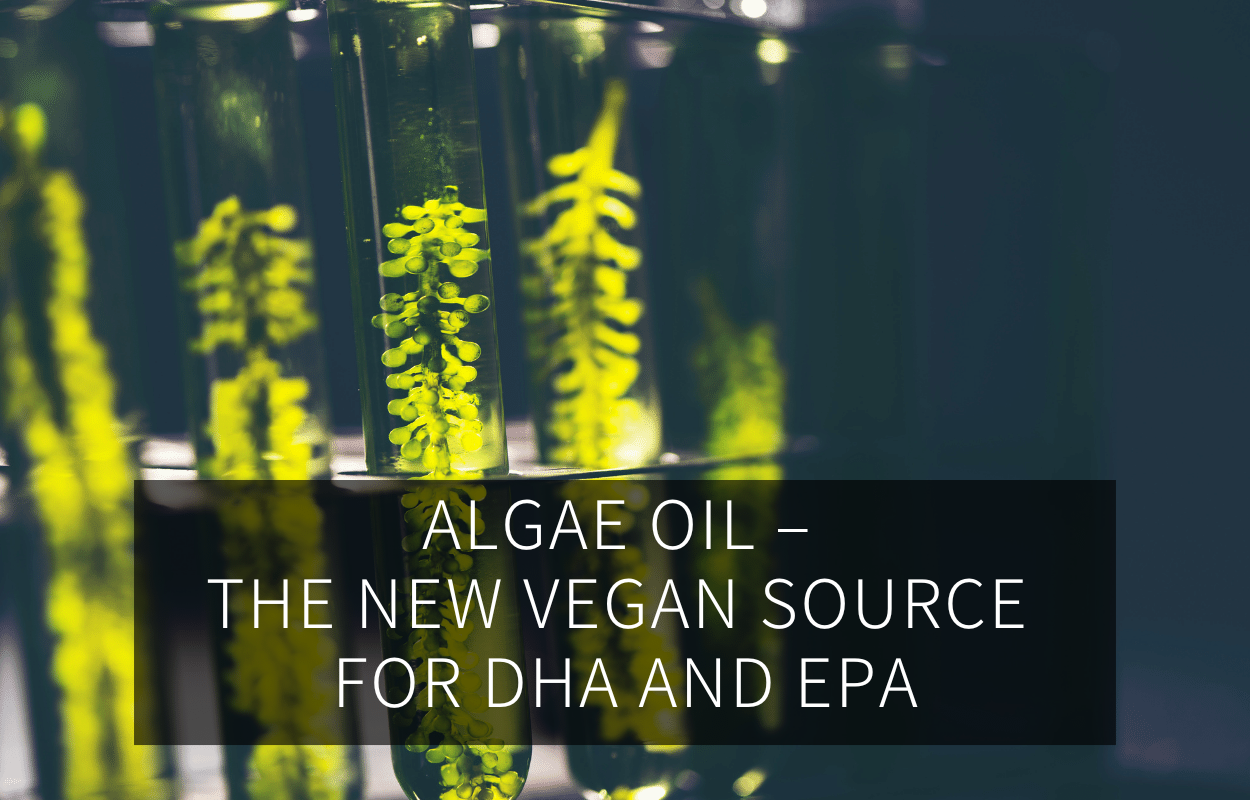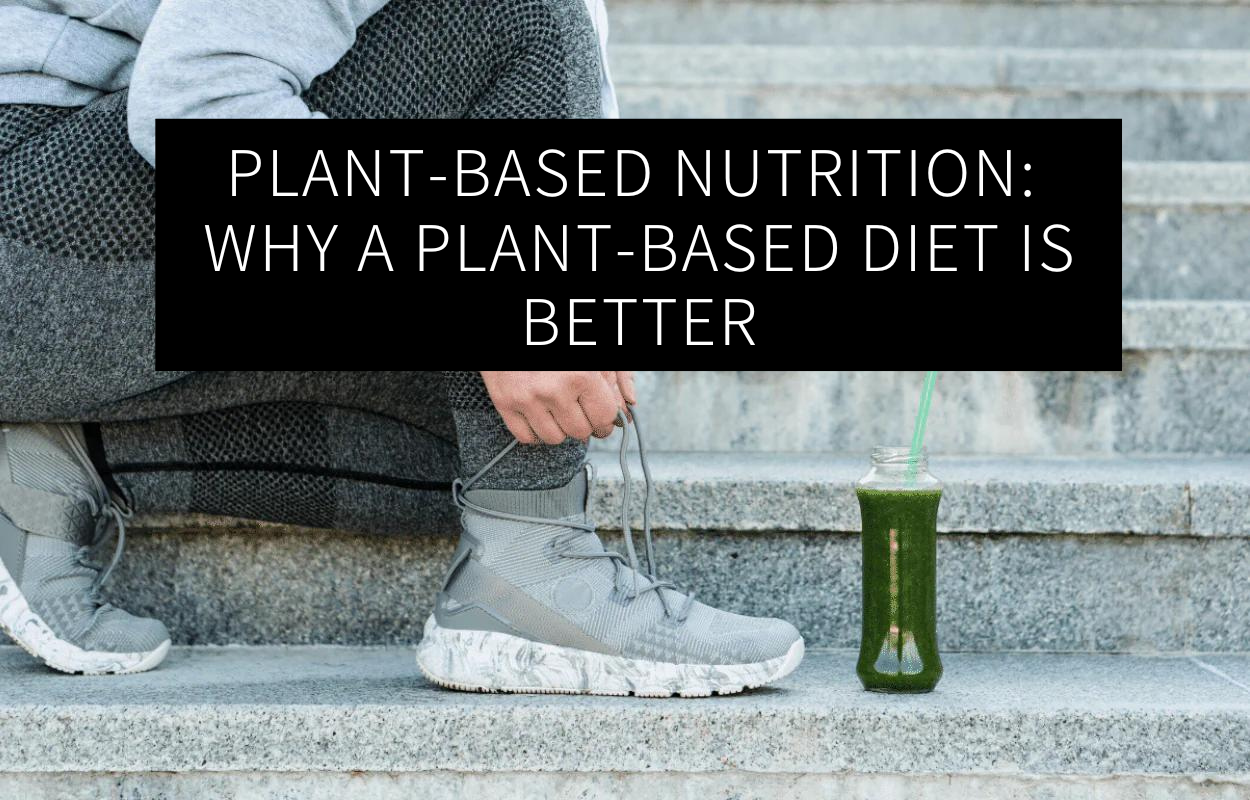As a vegan high performer, you need vegan Omega 3 to supply yourself with essential fatty acids. Algae oil is the perfect alternative to fish oil.
If you follow a vegan diet and want to perform at the highest level, you often need to consider supplementation, especially when it comes to vegan Omega 3 and the two essential fatty acids, EPA and DHA. While there are some plant-based foods that contain a high amount of Omega-3 fatty acids, they mainly contain the fatty acid ALA, which your body needs to convert into docosahexaenoic acid (DHA) and eicosapentaenoic acid (EPA). However, the conversion rate is extremely low, at around five percent. Algae oil, on the other hand, is much better – it is a plant-based oil extracted from algae and can provide an equally high content of Omega-3 fatty acids.
1. What is algae oil?
When you hear about Omega-3 fatty acids, you probably immediately think of fish. For non-vegans, fish is indeed one of the best sources of Omega-3 fatty acids. However, fish stocks have significantly declined in recent years, not to mention the pollution of the oceans with microplastics. That’s why not only vegan performance artists but also many non-vegans turn to Omega-3 fatty acids from algae oil.
The term „algae oil“ can be taken literally. The plant oil is derived from algae, specifically microalgae. The most well-known algae include Spirulina, Chlorella, Schizochytrium sp., and Ulkenia sp., with the last two being saltwater algae.
Algae oil is believed to be equally effective as fish oil because it contains the two most important Omega-3 fatty acids, EPA and DHA, in high concentrations. Did you know that fish have a high content of Omega-3 fatty acids because they feed on algae? The fish utilize these fatty acids to keep their cell membranes supple, which would otherwise become stiff and immobile at low temperatures.
2. What is EPA?
EPA stands for eicosapentaenoic acid, an essential fatty acid that the body cannot produce on its own. This fatty acid is not only associated with a positive effect on the heart, but it is also believed to influence our emotions. For you, the fatty acid can be particularly beneficial if you are mentally and physically active and want to challenge your brain or body at the highest level.

3. What is DHA?
Behind that abbreviation lies docosahexaenoic acid (DHA), an Omega-3 fatty acid that you should not overlook. There are now many studies examining the impact of DHA on heart health. Scientists currently believe that it can contribute to normalizing blood pressure and heart rate and balancing cholesterol levels.
The fact that this fatty acid also has a positive effect on the brain is likely to be even more interesting for biohackers. With the help of DHA, nerve cells are able to transmit information more quickly, allowing you to improve your brain activity and cognitive performance. The fact that 30 percent of the dry weight of the brain consists of this fatty acid highlights its importance. If you don’t consume enough vegan Omega 3 through your diet, it can negatively affect your mental performance.
4. Algae Oil or Flaxseed: Which is better?
If you follow a vegan diet, you must necessarily rely on a different source of EPA and DHA to supply yourself with Omega-3 fatty acids. This is generally not a problem since there are plant-based foods that contain Omega-3 fatty acids. However, unlike algae oil, these foods are enriched with alpha-linolenic acid (ALA) and not EPA and DHA.
ALA is also an Omega-3 fatty acid, but your body needs to convert it into EPA and DHA to be able to absorb it. The body can’t utilize all of it, meaning that the proportion of foods with Omega-3 fatty acids in your vegan diet needs to be higher to meet your increased need for essential fatty acids.
Considering that ALA is mainly found in flaxseeds and hemp seeds and their oils, it becomes clear that increasing the intake can be disadvantageous due to the high fat content of these foods. Therefore, as a biohacker, you must consider how to increase your intake of Omega-3 fatty acids without having to consume large amounts of flaxseeds or flaxseed oil. Our vegan Omega 3, which is derived from algae oil, demonstrates that this goal is not so difficult to achieve.
5. How is vegan Omega 3 produced?
The extraction of oil in general involves high costs. Algae oil is mostly obtained from algae in aquaculture, which can grow under controlled conditions without the use of pollutants. To preserve the natural nutrient content of the algae, they must be harvested extremely gently and processed promptly.
For processing, several methods are available. The oil can be extracted either using ultrasound, enzymes, or a special pressing technique. Before the actual extraction process, the plants need to be dried to separate the individual plant components from each other. This process is crucial because the algae contain other fatty acids that can oxidize after production, which can affect the shelf life of the final algae oil.

6. What is the difference between algae oil and fish oil?
If you want to enrich your diet with vegan Omega 3, you may be wondering which oil is better: fish oil or vegan Omega 3? This question can be easily answered since both oils have a high content of EPA and DHA. Due to this fact, you can increase your intake of flaxseeds and hemp seeds and their oils on one hand and, on the other hand, supplement your „additional need“ for Omega-3 fatty acids with a dietary supplement.
In terms of EPA and DHA content, vegan Omega 3 does not need to hide behind its animal counterpart. Moreover, the plant-based oil has the advantage of sustainability. As it is derived from algae grown under controlled conditions, it definitely contributes to the protection of our ecosystem. Estimates suggest that the global fish stock has been greatly depleted due to excessive overfishing and aggressive fishing techniques. In contrast to fishing, algae are cultivated under biological conditions and harvested in a resource-efficient manner.
Another reason why many non-vegans are increasingly turning to vegan Omega-3 fatty acids is the taste. Fish oil capsules have a strong fishy taste, which can be quite challenging to get used to, especially at the beginning of intake. In contrast, capsules with vegan Omega-3 fatty acids have a neutral taste and can be easily incorporated into your dietary plan.
7. What are the effects of vegan Omega 3?
Vegan Omega 3 provides you with the full package of EPA and DHA, which means that it can make a significant contribution to your supply of Omega-3 fatty acids. Omega-3 fatty acids are important as they are involved in many processes in our body.
One of the most important functions is undoubtedly the maintenance of normal brain function, which can be of great advantage to you as a biohacker. By enriching your diet with vegan Omega 3, you can already make a significant contribution to your cognitive performance. Omega-3 fatty acids are believed to improve thinking and learning processes and may also have an impact on memory.
This means that by using Omega-3 fatty acids, you can not only work and learn better and more focused but also retrieve what you have learned more effectively. As a booster, vegan Omega-3 fatty acids seem to be almost perfect for your brain, especially if you are someone who frequently experiences concentration problems and a lack of focus in everyday life.
Since the fatty acids can positively influence cognitive performance, researchers even speculate that Omega-3 fatty acids can contribute to the prevention of Alzheimer’s and other degenerative diseases. Additionally, the fatty acids are believed to have a positive effect on vision since both the brain and the human eye are enriched with Omega-3 fatty acids.
Another point in favor of taking Omega-3 fatty acids is their impact on heart health. The fatty acids are said to lower blood pressure and protect against cardiovascular diseases. Furthermore, Omega-3 fatty acids are attributed with anti-inflammatory properties.
What many people do not know is that the fatty acids can even strengthen the immune system, which means that with regular intake, you can use them specifically as an immune booster.
8. Conclusion: Vegan Omega 3 to support mental performance
Omega-3 fatty acids can be the perfect support for your mental performance. Unfortunately, they are among the nutrients that your body cannot produce on its own, which means you rely on external intake. While there are vegan food sources that contain Omega-3 fatty acids, you cannot directly absorb the two most important fatty acids, namely docosahexaenoic acid (DHA) and eicosapentaenoic acid (EPA), as your body needs to convert them first.
Due to this conversion process, the body can only absorb a small portion of Omega-3 fatty acids, even though as a high performer, you require a much larger amount. Meeting this requirement solely through diet can be challenging, which is why more and more biohackers are turning to plant-based Omega-3 fatty acids from capsules to enhance cognitive performance and contribute to the immune system and heart health.





